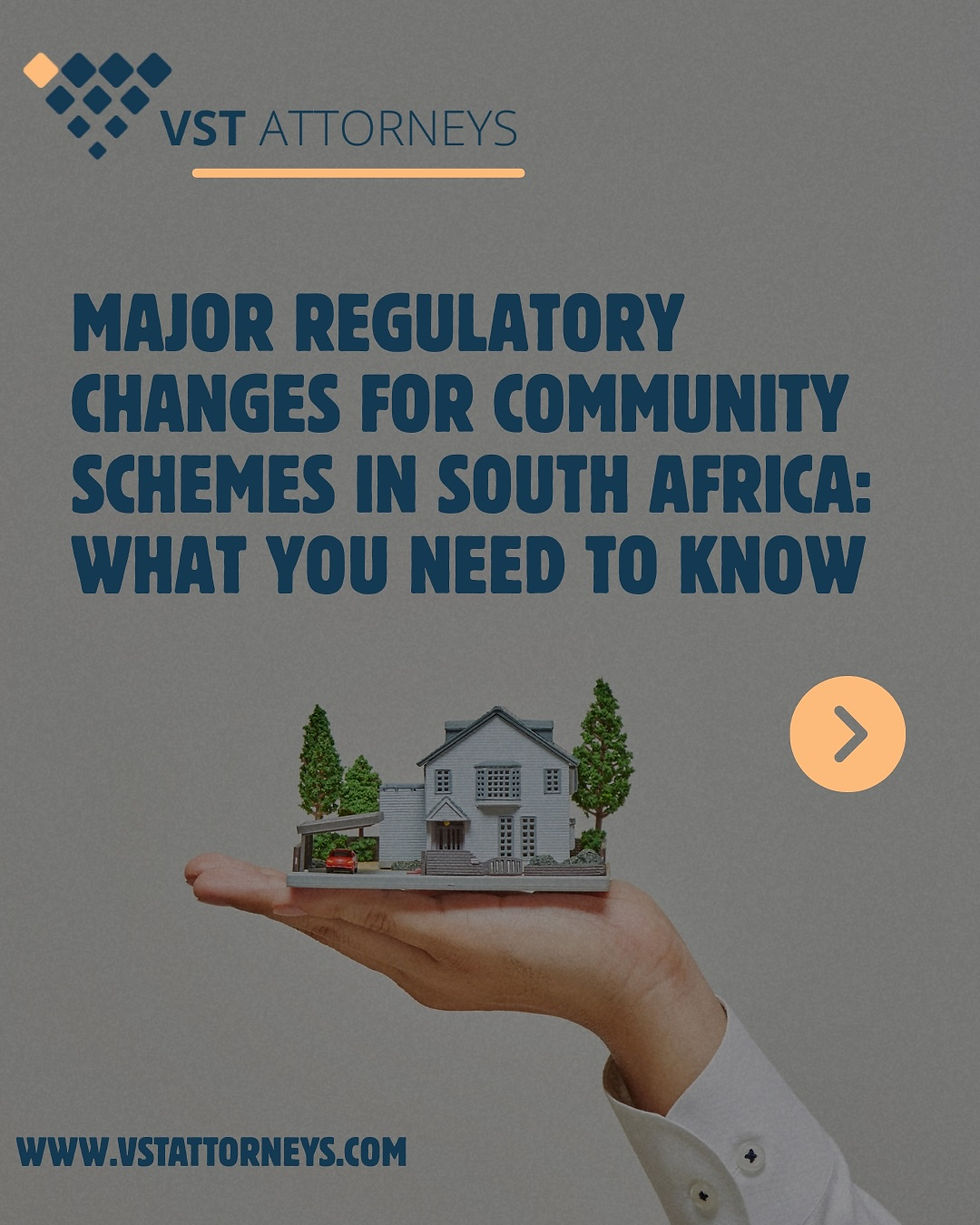Major Regulatory Changes for Community Schemes in South Africa: What You Need To Know
- VST

- Aug 12, 2025
- 2 min read
On 18 July 2025, the Community Schemes Ombud Service (CSOS) issued a new Practice Directive that fundamentally reshapes the governance and regulatory obligations of community schemes across South Africa. This directive now serves as the authoritative reference point for all schemes, including sectional title developments, homeowners’ associations (HOAs), retirement villages, and share block schemes.
A Shift in the Governance Landscape
The CSOS directive introduces a more structured and enforceable framework for scheme governance. It clarifies expectations around conduct rules, compliance procedures, and the fair treatment of residents.
Importantly, trustees no longer have discretionary power to enforce scheme rules as they see fit. Instead, their actions must align precisely with the procedures and standards set out by CSOS.
Key Areas of Change
1. Identification of “Undesirable Rules”
One of the most significant developments is the formal identification of so-called “undesirable rules”, being unconstitutional, discriminatory, or contrary to public policy. Rules that fall into this category have no legal standing, regardless of whether they were previously adopted by the scheme.
Examples include:
· Restriction on domestic workers: denying them visitation time or requiring them to wear name tags;
· Pet bans: allowing tenants to have cats but ban dogs;
· Forcing owners to use a particular estate agent when selling or letting their unit.
Such rules may be struck down during CSOS’s quality assurance process or through dispute resolution proceedings initiated by affected parties.
2. Regulation of Fines and Penalties
The new directive also addresses the imposition of fines; an area historically prone to abuse. Trustees may no longer issue penalties arbitrarily or without due process.
To be valid, fines must:
· Be preceded by a written warning;
· Include an internal dispute resolution process;
· Be subject to clearly defined timeframes; and
· Be less than the monthly levy charged to the relevant unit.
Open-ended fines or penalty systems without proper procedural safeguards are now explicitly prohibited.
3. Compliance Obligations for Schemes
Beyond rule-making, the directive imposes several administrative duties on schemes, including:
· Registering all governance documentation with CSOS;
· Ensuring compliance with the Protection of Personal Information Act (POPIA);
· Appointing and registering an Information Officer with the Information Regulator.
Failure to meet these requirements can result in administrative fines or further enforcement action under Section 34(1) of the CSOS Act. While the Act does not stipulate exact penalties, it provides for proportionate sanctions based on the seriousness of the breach.
Practical Steps for Trustees and Managing Agents
Given the scale and seriousness of the changes, all community schemes should conduct an immediate review of their governance structures and compliance protocols. Specifically:
· Audit existing rules for constitutional validity;
· Ensure all rules are registered with CSOS and aligned with the directive;
· Implement clear and fair disciplinary procedures;
· Review compliance with POPIA and the Sectional Titles Schemes Management Act;
· Educate committee members and residents on the legal changes.
Trustees and managing agents must approach scheme governance not only as a matter of policy but as a matter of law.
Contact us at VST to ensure proper compliance of your existing rules.





Comments